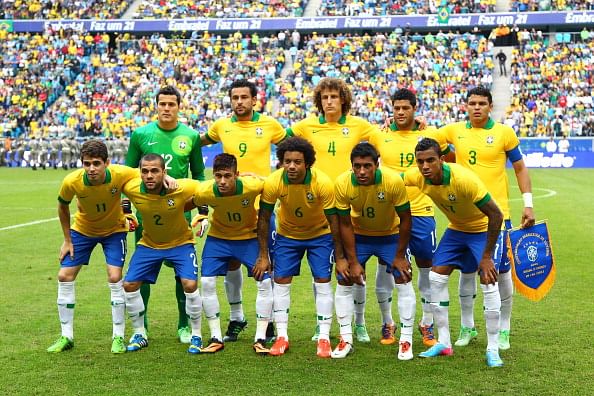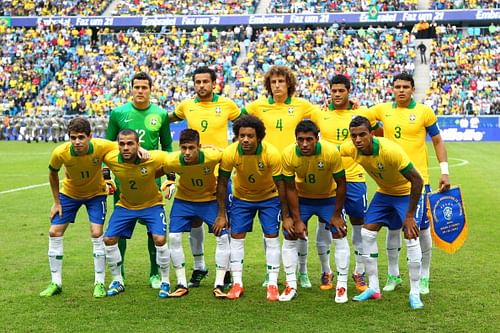
Under-pressure Brazil face Japan in tricky opener

Brazil and coach Luiz Felipe Scolari cannot help but have one eye on next year’s World Cup on home soil, but if the acid test is 12 months away the countdown starts Saturday when the Selecao take on Japan in their Confederations Cup opener.
Scolari led the Selecao to their fifth World Cup, a coronation sealed in Tokyo 11 years ago.
But the fact he is back for a second spell at the helm is evidence of the degree to which impatience and concern rule hearts and minds across this giant footballing nation given a clutch of disappointing showings at major events ever since.
Scolari has insisted since returning to the fold last November, ironically a matter of days after predecessor Mano Manezes’ Brazil side spanked the Japanese 4-0 in a friendly in Poland, that the Confederations Cup is a sideshow and that he cannot deliver a second dose of alchemy overnight.
Yet the pressure is on as the four-time Asian Cup champions should provide a stiff test before further showdowns with Olympic conquerors Mexico and three-time world champions Italy.
Brazil’s star man Neymar says the hosts will not take the Japanese, coached by hugely-experienced Italian Alberto Zaccheroni, lightly, given the hosts are now safe in the knowledge they have booked their World Cup berth and can also draw on the likes of Manchester United favourite Shinji Kagawa.
“Japan are a tricky proposition and not to be underestimated. Keisuke Honda and Kagawa are superb players and the team as a whole mark you very tightly,” said Barcelona-bound Neymar.
Japan say they won’t be caught napping as they were in Poland, but will need to keep an eye on in-form striker Fred, who has five goals in his last six internationals — including two against England in friendly tussles in Wembley — where England won 2-1 and Rio, which ended 2-2.
“Brazil have a very strong team and we need to make sure they don’t dole out a repeat of what they did in Poland,” said midfielder Yasuhito Endo.
“We will be out to make a much better impression this time with more at stake.”
The tournament is the first major event hosted by Brazil since the 1989 Confederations Cup and the logistical challenge has been a tough one, raising concerns about whether the country can produce 12 top notch venues for the World Cup.
The opening match at the Estadio Nacional affords residents of the capital a rare chance to watch top-drawer football as the city currently lacks a top-flight team.
The hosts will move on first to Fortaleza then Salvador for their remaining group encounters with Mexico and Italy.
If the Selecao win Group A, they will then travel to Belo Horizonte — scene of England’s 1950 World Cup upset at the hands of the United States — for a June 26 semi-final against either reigning South American champions Uruguay or African champions Nigeria, assuming world champions Spain win Group B.
Should Scolari’s men only take second place in the pool phase they would face a likely Spanish test in Fortaleza on June 27.
If Brasilia is off the beaten track in terms of Brazilian footballing tradition, nonetheless striking parallels can be seen between the city and the national team.
The city is a paean to modern architecture, a realised dream for former President Juscelino Kubitschek, who determined in the mid-1950s that the capital should be based in the very heart of the country rather than remain in Rio.
Kubitschek came up with the slogan “50 years of progress in five,” his era coinciding with the first great Brazil side which, with a teenage Pele on board, lifted their first World Cup in Sweden in 1958.